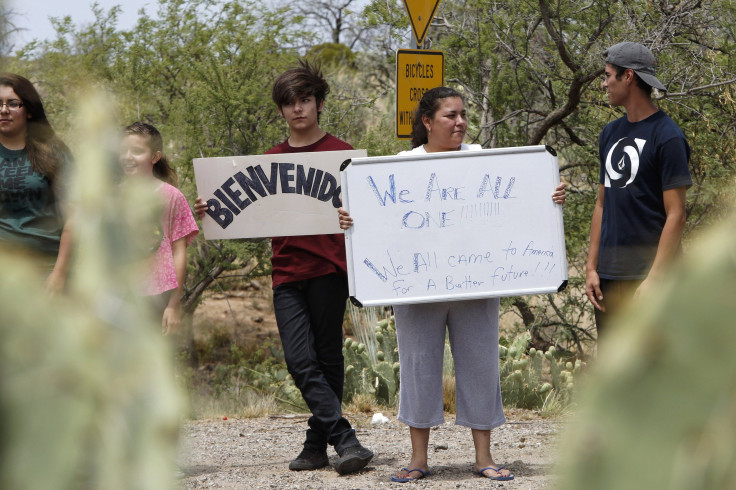Arizona Immigration Reform Bill Would Make It Illegal For Notary Publics To Provide Legal Assistance To Immigrants

Arizona gets a bad rap when it comes to immigration reform, but a bill making its way through the state legislature is geared toward helping vulnerable undocumented people avoid potential scams.
Legislation that would allow county attorneys in the state to target notary publics who act as lawyers and give legal advice to immigrants overcame its first legal hurdle Wednesday when a Senate committee in Phoenix voted almost unanimously for the bill to proceed. Notary publics in Arizona will often tell undocumented immigrants that they can help them with their deportation or immigration paperwork even though they are not legally qualified to do so. Notary publics in the United States are not attorneys capable of giving legal advice, as they are in many Latin American countries.
“What’s happening is that a lot of individuals are falling into that misunderstanding and are really being defrauded by these individuals,” Democratic state Sen. Martin Quezada, the bill’s primary sponsor, told Phoenix New Times, a weekly publication. “They’re performing certain legal work for them and are taking large sums of money and messing up a lot of the cases that could otherwise be done correctly. ”
When notary publics fill out paperwork for undocumented immigrants, supporters of the bill say, there is an increased likelihood that they will jeopardize their cases. Notary publics, on the other hand, have said that they don’t hear complaints from their customers.
Arizona has a well-known history of legislation that appears to target undocumented immigrants rather than help them avoid scams. A bill introduced in 2010, known as SB1070, led to a national dialogue about the role of municipal and county police in deportation proceedings. The bill required police officers to investigate the immigration status of anyone who they had “reasonable suspicion” to think was in the U.S. illegally. After significant backlash, the law was modified to be slightly more palatable to immigrant activists.
© Copyright IBTimes 2024. All rights reserved.






















